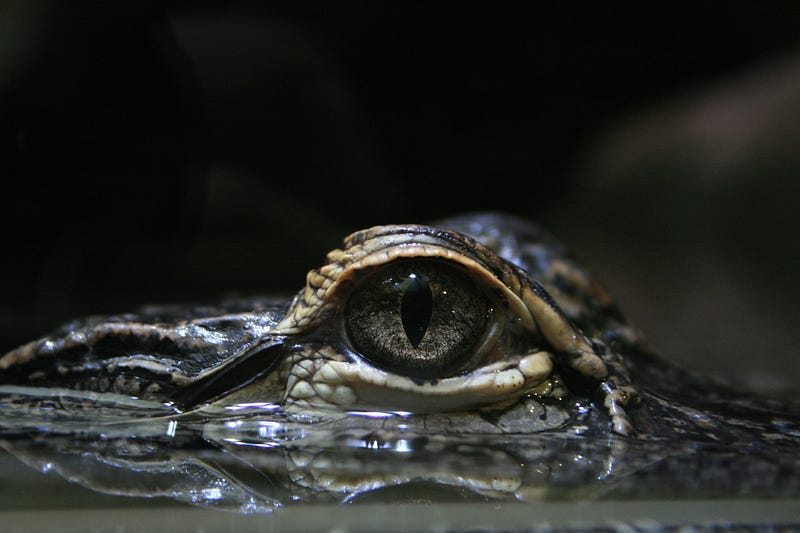Crocodile Tears and Mutant Wolves: A Dual Exploration
Written on
Chapter 1: The Nature of Crocodile Tears
In recent discussions surrounding the Covid Inquiry, Nicola Sturgeon was accused by the Scottish Daily Express of shedding "crocodile tears." This term originates from an age-old belief that crocodiles shed tears while devouring their prey. In contemporary language, it signifies a feigned display of grief, as defined by Collins Dictionary. The American Heritage Dictionary also describes it as a forced or insincere show of emotion.
The myth of the crying crocodile dates back to The Voyage and Travail of Sir John Maundeville, written around 1400. The phrase took on its current connotation of insincerity in 1563, credited to Archbishop Edmund Grindal.
More recently, Alastair Jack faced backlash for making dismissive remarks about Sturgeon’s emotional display, suggesting she could "cry from one eye if she wanted to." If her tears were indeed fabricated, she wouldn’t be the first. In 2021, Mary Harrington wrote for Unherd, proposing that crying had evolved into a political strategy. Notably, Matt Hancock, the former Health Secretary, famously wept on Good Morning Britain in December 2020, purportedly overwhelmed by the news of vaccine availability. Observers can judge the authenticity of his tears for themselves, particularly noting the hint of a smirk. The Independent certainly reported that he "appeared to cry." Could it be a case of crocodile tears all around?
Section 1.1: The Significance of Mutant Wolves
Shifting from reptiles to canines, recent reports indicate that mutant wolves from Chernobyl might provide insights into cancer resistance. The term "mutant" refers to any organism or gene that has undergone alteration. Mutation typically denotes a change in the structure of chromosomes or genes, derived from the Latin word mutare, meaning "to change."
Interestingly, while The Telegraph opted for a more subdued headline, describing these wolves as having "proactive mutations," many other outlets embraced the term "mutant." This choice is intriguing, as "mutant" often carries a negative connotation. The American Heritage Dictionary associates it with bizarre appearances or deficiencies.
In the context of popular culture, mutations have been depicted positively in works like Heroes, where characters discover latent superpowers while maintaining normal appearances. However, in the X-Men franchise, mutants are frequently portrayed with unusual features, leading to societal prejudice.
Subsection 1.1.1: Perception of "Mutants"

The term "mutant" can be derogatory, as exemplified by a line from The Wedding Singer, where Adam Sandler's character remarked that "the mutants over at table nine" would never find love.
As reports emerge regarding the wolves and dogs inhabiting the Chernobyl zone, one might question whether the term "mutant" is intentionally chosen to alienate us from these creatures. While the current findings are limited to blood tests and DNA analyses, if these animals have genuinely developed cancer resistance, there will likely be a surge of interest and subsequent studies—potentially leading to unfortunate outcomes for the wolves.
Chapter 2: The Implications of Scientific Discoveries
The first video, "Breeding Wolves For Mutations | ARK: Scorched Earth #76," explores the fascinating world of mutant wolves and their potential implications.
The second video, "Far Cry 6 - All Mythical Animals and Their Locations Guide," provides insights into mythical creatures, drawing parallels to real-world discussions of mutant animals.